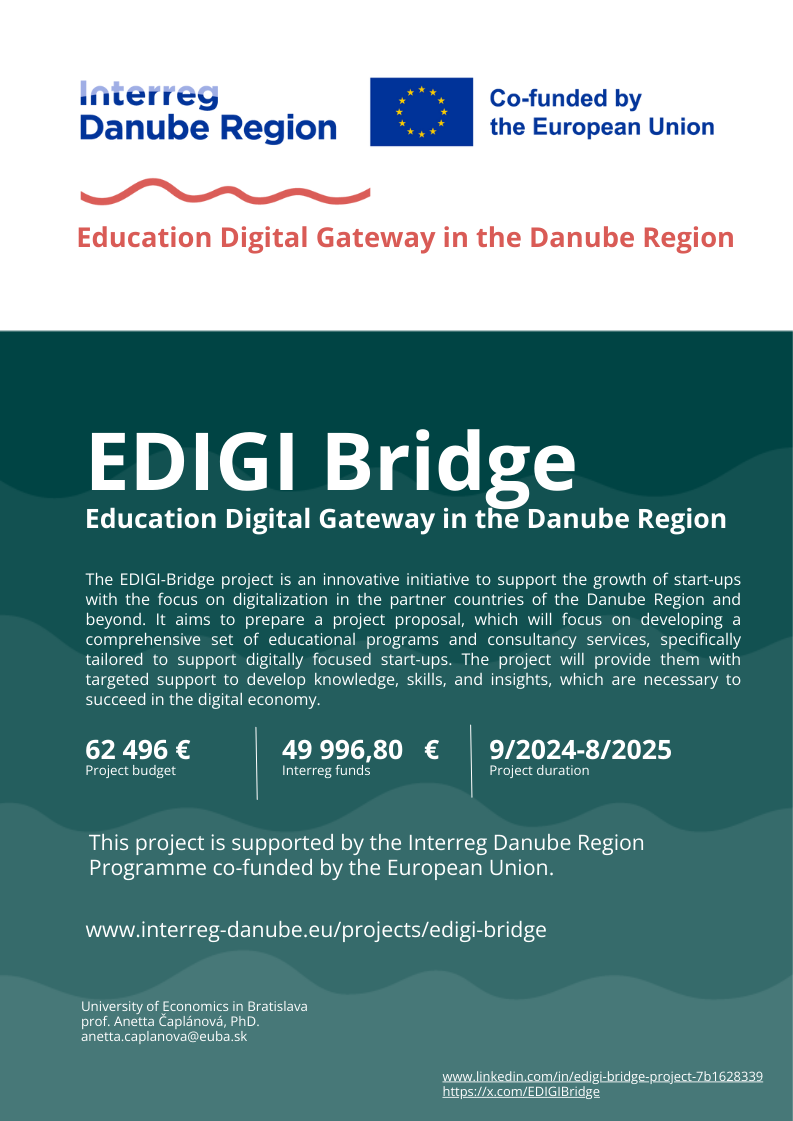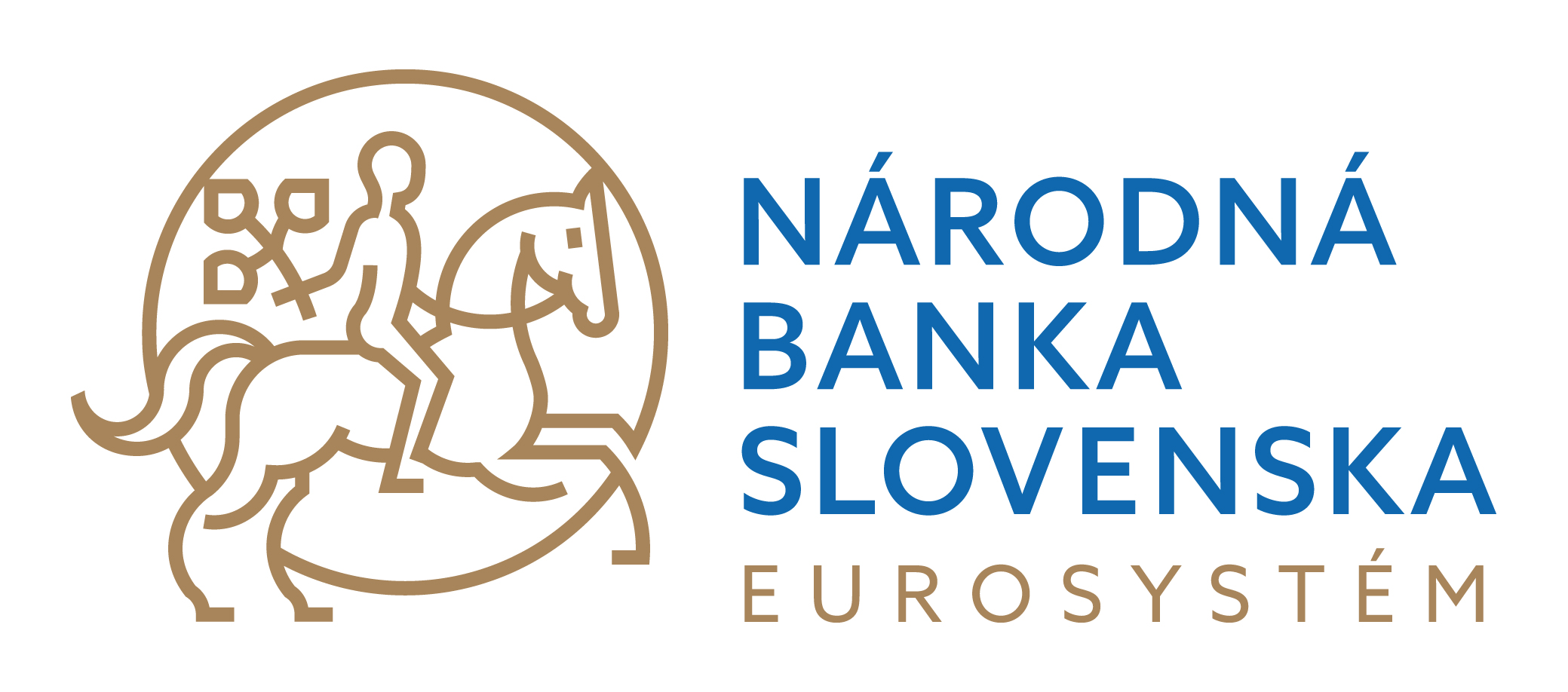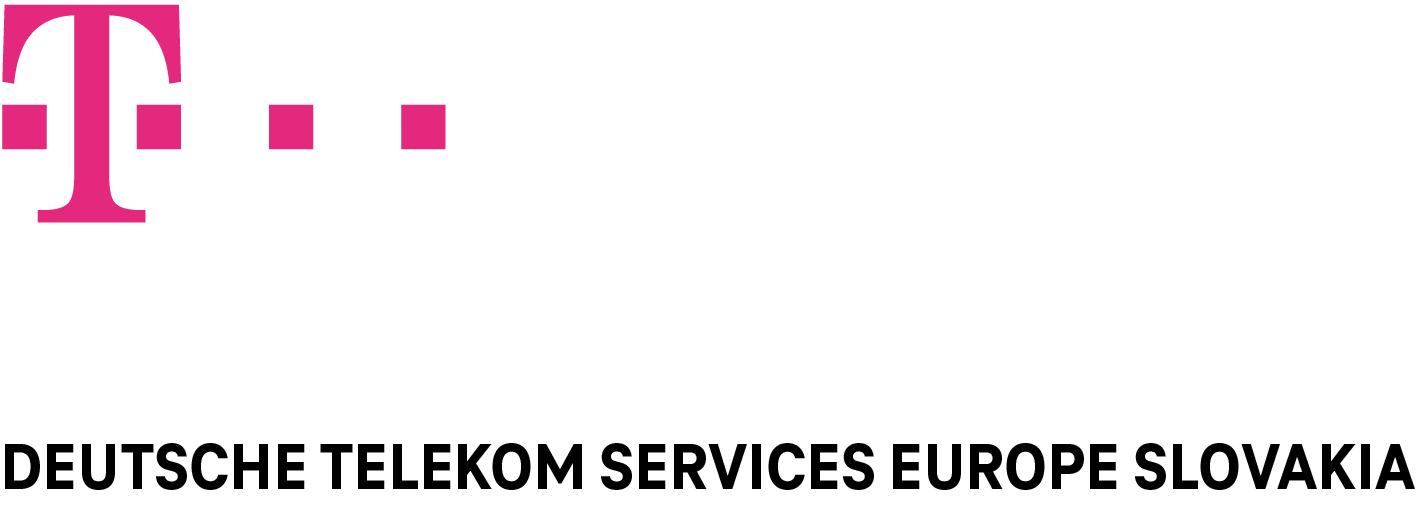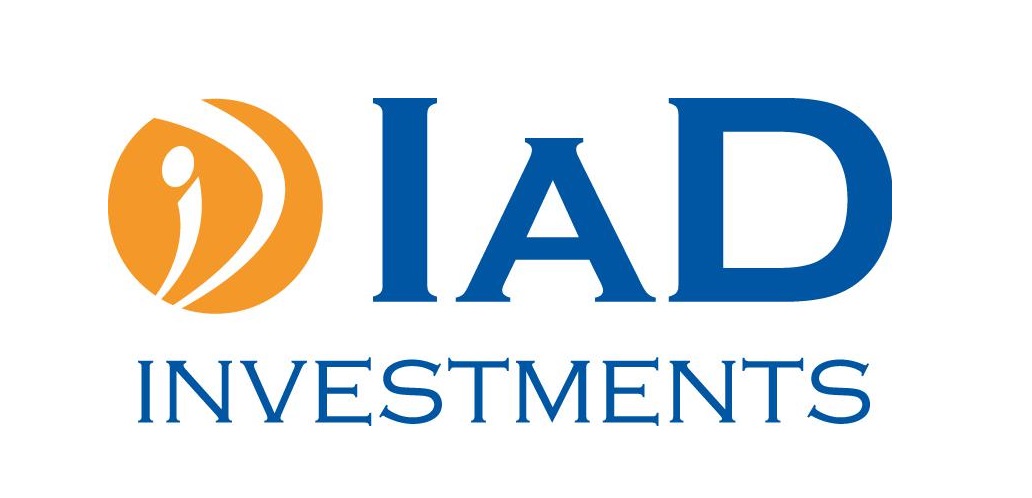Since its establishment, the Department of Economics has emphasized not only pedagogical activities, but also the development of scientific research activities. The basis for the dynamic development of science and research was the conviction of the members of the department that an integral part of the operation of a top university in the European Educational and Scientific Research Area is quality education and internationally recognized scientific and research activities. The projects of scientific and research activities of the European Commission are primarily focused on basic and applied research and their connection with higher education, cooperation with social and economic practice at home and abroad.
At present, the department focuses its scientific and research activities on the following areas of research.
Current projects:
Smart Transformation and Innovation Consortium Slovakia (STICS)
Funded by the European Union through the NextGenerationEU Recovery and Resilience Plan of the Slovak Republic.
Call code: 09I02-03-V01-00011, „Transformačné a inovačné konzorciá“
Project acronym: STICS
Project duration: 01.04.2025 – 30.09.2027
Project coordinators: prof. Ing. Beáta Gavurová, PhD., MBA, prof. Ing. Anetta Čaplánová, PhD.
Project team members: Ing. Ľubomír Darmo, PhD., Ing. Andrej Přivara, PhD., Ing. Mgr. Mkiyes Hussein, BSc, PhD., Mgr. Martin Rigelský, PhD.
Main project objectives: The project aims to build a new, innovative ecosystem for municipalities based on data sharing among various types of stakeholders. This ecosystem will support the development of advanced domain-specific applications and horizontal services, leveraging heterogeneous and large-scale data sources. The project integrates cutting-edge technologies such as artificial intelligence, big data, edge computing, and distributed ledger technologies. Its outcomes are expected to enhance digital transformation and innovation capacity in public administration and local governance.
Unpacking the Savings Shift: Pension Reform's Influence on Defined Contribution Plan Participants
Funded by the European Union through the NextGenerationEU Recovery and Resilience Plan of the Slovak Republic.
Call code: 09I03-03-V04, “Scholarships for Excellent Researchers R2–R4”
Project acronym: SSDCP
Project duration: 01.09.2024 – 30.06.2026
Project team members: MSc. Estera Szakadatova, PhD., Supervisor: prof. Ing. Anetta Čaplánová, PhD.
Main project objectives: The project aims to broaden insights in the field of behavioural economics and finance by analysing the investment behaviour of Slovak pension savers both in general and within the context of pension savings. The research focuses particularly on how changes in default investment strategies affect saver behaviour, with a focus on studying the impact of behavioural biases on decision-making. The project combines theoretical research with empirical analysis, utilising statistical and econometric methods. Its findings will provide valuable insights into the effectiveness of pension system reforms, enable international comparisons, and deepen the understanding of investor decision-making in various contexts.
Sustainability for Future
Project acronym: Sustain4Future
Call: EIT Higher Education Institutions (HEI) Initiative Call 2024
Action: 01113035-HEI Initiative – HORIZON-EIT-2023-2025-KIC
Project number: 24174
Duration: 1 April 2025 – 30 April 2027
Coordinator: VIA University College, Denmark
Partners:
- Fundació Tecnocampus Mataró-Maresme, Španielsko
- PowerHUB, Česko
- Esslingen University, Nemecko
- Epoka University, Albánsko
- Estonian Entrepreneurship University of Applied Sciences, Estónsko
- Artevelde University Of Applied Sciences, Belgicko
- Univesity West, Švédsko
- Bratislava University of Economics and Business, Slovensko
Project abstract:
The Sustain4Future project responds to the urgent need for higher-education institutions to play a key role in promoting sustainable education. This aligns with the HEI Initiative’s call to build capacity within universities to address global challenges such as climate change, resource depletion, and social inequality. By embedding sustainability into entrepreneurial ecosystems, universities can drive Europe’s transition to a sustainable and inclusive economy.
The project seeks to strengthen the role of universities in integrating sustainability awareness into the educational process through three pillars:
- Promoting entrepreneurial mindsets
- Preparing and supporting entrepreneurs
- Supporting entrepreneurial ecosystems
Sustain4Future builds on HEInnovate activities and brings together nine partners from across Europe, including both experienced institutions and newly involved partners. The consortium combines deep expertise in sustainability management, entrepreneurship, and innovation with a strong regional and international network of partners and existing initiatives.
Enhancing Digital and Soft Skills for Ageing Workforce (EDSAW) Projekt č. 2023-1-SK01-KA220-ADU-000159273
Project duration: 1.4.2024 – 30.9.2026
Project coordinator: prof. Ing. Anetta Čaplánová, PhD.
Project members for the department: Ing. Andrej Přívara, PhD., Ing. Eva Sirakovová, PhD., Ing. Hussein Mkiyes, PhD.
Main objective of the project: The project is specifically aimed at bridging the digital divide in Central Europe with a focus on the development of digital skills among the experienced workforce (workers 50+). The e-learning platform created will provide cutting-edge courses that will contribute to building their digital and soft skills and thus their personal and professional growth. The project consortium is composed of university and non-university partner institutions in Slovakia, the Czech Republic, Spain and Turkey.
Digital Tools in Financial Education: The Role of Gamification in Enhancing Financial Literacy
Project number: Early stage grant - A-25-101/3020-07
Project duration: 2025
Project members for the department: Mgr. Radoslav Zemko
Main objective of the project: The project focuses on the use of online games in student financial education, especially in the area of investing, and examines whether gamification increases student engagement and facilitates the connection between theory and practice.
Education Digital Gateway in the Danube Region - EDIGI-Bridge – Interreg Danube SMF (projekt č. DRP0401226)
Project duration: 1.9.2024 – 31.8.2025
Project coordinator: prof. Ing. Anetta Čaplánová, PhD.
Project members for the department: prof. Ing. Anetta Čaplánová, PhD., Ing. Eva Sirakovová, PhD.
Main objective of the project: The EDIGI-Bridge project is an innovative initiative that aims to prepare a project supporting the development of start-ups with a focus on digitalization in the partner countries of the Danube region. The aim of the project is to prepare a project proposal that will focus on the creation of a comprehensive set of educational programs and advisory services, specifically tailored to support digitally oriented start-ups. The prepared project will provide targeted support for the development of knowledge and skills that are necessary for their success in the digital economy. The prepared project will be based on a thorough needs analysis, which will include the analysis of secondary as well as the collection of primary data, as well as the analysis of relevant policies and strategic documents. A comprehensive study of potential sources of funding and grant schemes will also be processed, which will contribute to the effective selection of the grant scheme in which the project will be submitted. Institutions from Slovakia and Montenegro are participating in the project.

Overcoming Digital Divide in Europe and Southeast Asia ODDEA, Project 101086381, Call: HORIZON-MSCA-2021-SE-01-1
Project duration: 2022 - 2026
Project coordinator: University of Economics in Bratislava
Project members for the department: prof. Ing. Anetta Čaplánová, PhD., Ing. Ľubomír Darmo, PhD., Ing. Eva Sirakovová, PhD., Ing. Andrej Přívara, PhD., Ing. Hussein Mkiyes, PhD.
Main objective of the project: The main objective of the project is to contribute to the formation of a group of researchers in the Southeast Asian region who will focus on digitization processes in a consistent, interdisciplinary and systematic way and identify similarities and differences in the digitization process between the two regions (Europe vs. Asia).
Additional information about the project: The COVID-19 pandemic has highlighted the need for digitalisation, as individuals and governments alike have used digital technologies and skills to address the scientific and socio-economic challenges posed by the pandemic. Digitalization has helped sustain economies and society by enabling remote work, tracking the spread of the virus, and accelerating research into potential treatments and vaccines. This underlined the need for a resilient digital transformation and the strengthening of the digital economy and society. In fact, the European Commission has made the digitalisation of Europe one of its key priorities with the aim of creating a 'Digital Decade'. However, the importance of digitalisation goes beyond Europe, as EU-associated countries such as Montenegro and Southeast Asian developing countries such as Indonesia, Malaysia and Thailand can also benefit from the digital transformation. It can help these countries to accelerate their economic growth, achieve sustainable development and improve the quality of life of their citizens.
Master Studies in Sustainable Development and Management, MASUDEM, ERASMUS-EDU-2022-CBHE-STRAND-2, Projekt č. 101082797
Project duration: 2022 - 2025
Project coordinator: University of Economics in Bratislava
Project members for the department: prof. Ing. Anetta Čaplánová, PhD., Ing. Ľubomír Darmo, PhD., Ing. Eva Sirakovová, PhD., Ing. Andrej Přívara, PhD.
Main objective of the project: The aim of the MASUDEM project is to support sustainable development and job creation in Indonesia and Thailand (Region 5) through the development and improvement of curricula and the capacities of academic and administrative staff at partner universities in these countries.
Additional information about the project: The project aims to address the critical need to promote sustainable growth and the Green Deal and will be instrumental in achieving these goals in partner countries. In the course of the project, the development and accreditation of a new master's program/Concentration in Sustainable Development and Management will take place at the universities of the partner countries. This new programme will be supported by the development of relevant modules of the study programme, the documentation of the course and study texts, as well as the retraining of the academic staff of the partner countries teaching in the programme. In addition, services for Master's students will be in line with best practices, and trained administrative staff will be responsible for providing them.
APVV - Quantification of socio-economic indicators and effects in the management of health and social policy of marginalized communities (Project No. APVV-23-0319)
Project duration: 2024 – 2027
Project leader: prof. Ing. Anetta Čaplánová, PhD.
Project members for the department: prof. Ing. Anetta Čaplánová, PhD., Ing. Ľubomír Darmo, PhD., Ing. Andrej Přívara, PhD., Ing. Eva Sirakovová, PhD.
Main objective of the project: Slovakia is one of the countries significantly burdened by the problem of health inequalities, mainly affecting minority groups of the population living in areas with concentrated poverty. Despite the efforts of institutions to address this problem, there is still no comprehensive analysis in Slovakia that would explicitly quantify the health and its significant determinants of the population in segregated and marginalized communities with impacts on policymaking. Based on the results of the primary research, the main objective of the project is to design a comprehensive multidimensional system enabling the quantification of the development of birth rate, morbidity and mortality metrics in segregated and marginalized communities and to define their importance in the stabilization and regulatory mechanisms of health and social policy in Slovakia. The design of concepts and policies in the field of health and social will be based on the complexity and interconnectedness of the causes of the current situation and the systematic solution of several interconnected problems and the quantification of multidimensional causal relationships of health determinants.
VEGA - Socio-Economic Challenges of the Migration Policy of the Slovak Republic in the Context of the Development of the Labour Market Situation
Project duration: 2024 – 2025
Project leader: Ing. Andrej Přívara, PhD.
Project members for the department: Ing. Andrej Přívara, PhD., prof. Tyran Jean-Robert, PhD., Ing. Mészáros Róbert, Ing., Ing. Mgr. Mkiyes Hussein, PhD., Ing. Rahmat, Najib Rahman, MA
Main objective of the project: The main objective of the project is to identify the socio-economic challenges of the migration policy of the Slovak Republic (SR) related to the acquisition of labour migrants from third countries for the Slovak labour market. The aim is also to propose systemic measures to address shortages in the labour market through the optimisation of migration policy and its effective management of labour migrant flows.
Additional information about the project: The project will address the main demographic and economic trends affecting the Slovak labour market, with a focus on the need for labour. It examines examples of good practice in managing migration flows in other EU countries, while actively participating in expert discussions and publishing scientific articles. The project includes quantifying the potential of labour migrants to address the shortage of skilled labour and organising expert workshops and conferences to present outputs. The collected data will be used to formulate recommendations for the decision-making sphere that will help improve the migration policy of the Slovak Republic.
VEGA - Circular migration of highly skilled labour in EU countries: a challenge for migration policies
Project duration: 2024 – 2026
Project leader: prof. Ing. Magdaléna Přívarová, CSc.
Project members for the department: prof. Ing. Magdaléna Přívarová, CSc., prof. Ing. Čaplánová Anetta, PhD., Ing. Róbert Mészáros, MBA, Ing. Rahmat Najib Rahman, MA, Ing. Trnovský Karol, PhD.
Main objective of the project: The research team has the ambition to review current migration policies in EU countries and outline the main directions that these policies should take, in the context of brain circulation.
Additional information about the project: The research team will focus on the analysis of problems that already exist in practice, but are not yet sufficiently developed in economic theory: determinants of international migration of students, prerequisites for the full use of highly qualified migrants, level shift in the migration policy of the state. On the basis of the examination of these problem areas, hypotheses will be formulated, which will be tested on the basis of empirical data from EU countries.
VEGA - Indebtedness of Economic Entities and Countries in the European Union
Project duration: 2023 - 2026
Project leader: Ing. Marcel Novák, PhD.
Project members for the department: Ing. Ľubomír Darmo, PhD. - deputy project leader, Ing. Ivana Lennerová, PhD., prof. Ing. Ján Lisý, PhD., prof. Ing. Eva Muchová, PhD., Ing. Peter Leško, PhD., Ing. Karol Trnovský, PhD., Ing. Zuzana Brinčíková, PhD., doc. Ing. Marta Martincová, PhD.
Main objective of the project: Based on the assessment of the impact of public debt sustainability and the convergence of tax revenues on the macroeconomic stability of countries and economic entities, we will prepare a proposal for systemic solutions in the area of indebtedness of countries, households and companies.
Additional information about the project: The result of countries' indebtedness in the current period is growing debt and growing indebtedness of economic entities, especially as a result of the pandemic and rising prices. There are problems associated with debt repayment and an increased risk of default - an increase in the risk premium, At the macro level, the government loses room for maneuver for fiscal stimulation of the economy - especially in a situation of low interest rates and high inflation. The indebtedness of Slovak households is growing at the highest rate of EU countries and requires further measures in the area of macroprudential policy. The project will focus on the analysis of public debt sustainability, the search for solutions to eliminate the growth of household indebtedness and measures for the stability of budget revenues with regard to the upcoming reforms based on the approved Recovery and Resilience Plan in the Slovak Republic and EU countries. It will propose systemic solutions in the area of indebtedness of countries, households and companies. It will introduce new schemes in the field of administration and collection of taxes with respect to Ricardian equivalence.
VEGA - Improving the functioning of economic processes using the knowledge of behavioral economics (Theoretical and empirical approach)
Project duration: 2023 - 2026
Project leader: prof. Ing. Anetta Čaplánová, PhD.
Project members for the department: Ing. Eva Sirakovová, PhD., Ing. Ľubomír Darmo, PhD., Ing. Eleonóra Matoušková,PhD., Ing. Mgr. Zsolt Horbulák, PhD. Ing. Andrej Přívara, PhD., Ing. Mgr. Hussein Mkiyes
Main objective of the project: The main objective of the project is to contribute to the development of behavioral economics and the shift of knowledge through the implementation of theoretical and empirical behavioral research and, based on its conclusions, to draw recommendations on better setting of the implementation of measures and public policies.
Additional information about the project: The project will develop scientific knowledge in the field of behavioral economics. Behavioral economics is an interdisciplinary scientific discipline that studies the behavior of individuals and the factors that distance it from rationality. The behavioral approach finds more and more application when economic development has proven the limitations of the rationality paradigm. The project will be based on the systemization of scientific literature and its focus is original research focused on theoretical and empirical testing of selected concepts. The research team examines the decision-making processes of individuals and their implications for the micro and macro spheres. In theoretical research, the researchers model the behavior of economic subjects after taking into account the prospect theory, in the empirical part, using controlled controlled experiments, they verify selected theoretical conclusions of behavioral research and formulate practical recommendations. The project contributes to a shift in knowledge in the field of behavioral economics and to a better understanding of the decision-making of subjects in the studied areas.
KEGA – Educational online platform for teaching economics and financial literacy
Project duration: 2024 – 2026
Project leader: prof. Ing. Eva Muchová, PhD.
Project members for the department: prof. Ing. Eva Muchová, PhD., Ing. Leško Peter,PhD., doc. Ing. Martincová Marta, PhD., Ing. Novák Marcel, PhD., Ing. Darmo Ľubomír, PhD., Ing. Lennerová Ivana, PhD., Ing. Brinčíková Zuzana, PhD.
Main objective of the project: The aim of the project is to create a comprehensive educational online platform for teaching economics with a link to the issue of financial literacy.
Additional information about the project: The project emphasizes the long-term development of students' knowledge in the economic and financial field so that they have the opportunity for self-education and deepening their knowledge. The educational platform is intended for everyone who wants to learn the issues of the modern market economy. Attention is focused mainly on students (version of the platform for students) and applicants for study at the University of Economics, but also students of other faculties of economics in Slovakia. The outputs of the project in electronic form will also be available to university and secondary school teachers (version of the platform for teachers) and the general public. The project also includes the promotion of the platform, or the popularization of economics through the organization of lectures and discussions with experts from economic practice.
KEGA – Economic education through the integration of innovative digitally enhanced teaching strategies
Project duration: 2024 – 2026
Project leader: Ing. Andrej Přívara, PhD.
Project members for the department: Ing. Andrej Přívara, PhD., prof. Ing. Čaplánová Anetta, PhD., Ing. Lennerová Ivana, PhD., Ing. Brinčíková Zuzana, PhD., Ing. Sirakovová Eva, PhD., Ing. Trnovský Karol, PhD., prof. Ing. Přívarová Magdaléna, CSc. Ing. Mészáros Róbert, MBA, Ing. Mgr. Mkiyes Hussein, BSc., PhD., Ing. Rahmat Rahman Najib, MA
Main objective of the project: The main objective of the project is to support the modernization of the Master's degree program in Applied Economics at the University of Economics in Bratislava through the integration of innovative, digitally enhanced teaching strategies. The project aims to improve students' learning outcomes, increase their engagement and critical thinking, and adapt teaching to modern digital tools so that students and educators can better navigate the digital environment.
Additional information about the project: The project will develop a new innovative framework that will be implemented in the Master's degree program Applied Economics. The results of the research will be used to create teaching materials and tools for specific subjects, such as advanced microeconomics and behavioral economics. The project will include a pilot phase, during which the new methodology will be tested and subsequently evaluated. Once the pilot phase has been evaluated, the outputs will be used to improve teaching and prepare students for modern labour markets and the challenges of the 21st century. The outputs of the project will be presented in the form of scientific publications and teaching texts, and active cooperation with international partners is also expected.
Young Researchers Project - Navigating New Horizons: Assessing the Socio-Economic Impacts of Digitalization on Current Migration Patterns
Project duration: 2024 - 2025
Project coordinator: University of Economics in Bratislava
Project members for the department: Ing. Róbert Mészáros, MBA, Ing. Rahmat Rahman Najib, MA
Main objective of the project: The main objective of the project is to monitor the impact of digitalization on migration processes in general, as well as with a special emphasis on socio-economic impacts and labor markets. The purpose of the project is to try to analyze the relationship how these digital platforms, communication technologies and online resources create a framework for migrants' decision-making in reshaping migration trends in a rapidly changing environment.
Additional information about the project: Digitalisation and migration are linked in this regard in a complex way requiring further investigation from an interdisciplinary perspective. A combination of qualitative and quantitative methods will be used for this purpose. Data will be obtained from questionnaires, surveys, interviews and econometric modelling to determine the economic impacts of digitalisation on the labour markets of different economies that are affected by migration. We will also include social media analysis in the research methodology to explore the role of digital platforms in migration and further propose policy guidance based on the research findings. The expected outputs will provide a better understanding of migration dynamics, socio-economic risks, opportunities and strategies that can guide future policies in the digital era.
Projects solved in the previous period:
Collaboration for Effective Digital Education (D-COLLAB) - program Erasmus+
Project duration: 03/2021 - 02/2023
Project coordinator: University of Economics in Bratislava
Project members for the department: prof. Ing. Anetta Čaplánová, PhD., Ing. Ľubomír Darmo, PhD.
Main objective of the project: The D-COLLAB project focuses on the field of digitalization at all levels of higher education with a special focus on Slovakia.
Additional information about the project: The COVID-19 pandemic has shown that in many countries education systems are unprepared for the need to move to digital teaching and learning. While higher education institutions were probably better prepared for the sudden shift to online learning than secondary or primary schools, the degree of complexity of teaching at tertiary level of education also contributes to the complexity of this task. In the midst of the second wave of the COVID-19 pandemic, the D-COLLAB project aims to find and implement effective ways of teaching and learning at tertiary level using digital platforms.
Competitiveness of Slovakia in the conditions of the European Union
Project duration: 2020 - 2022
Project leader: Brinčíková Zuzana, Ing., PhD.
Project members for the department: Ing. Ľubomír Darmo, PhD., Ing. Ivana Lennerová, PhD., Ing. Alexandra Veselková, PhD., doc. Ing. Vieroslava Holková, CSc.
Main objective of the project: Assessment of competitiveness and comparative advantages of the Slovak Republic as a source of economic growth and analysis of the main factors that enable their creation, growth and use in the development of the economy.
Additional information about the project: The partial tasks of the project are: assessment of the role of competitiveness as a factor stimulating economic growth, analysis of comparative advantages of the Slovak Republic and their impact on the competitiveness of the Slovak Republic through various indicators, analysis of the development of comparative advantages of the Slovak Republic before and after accession to the EU and the euro area, assessment of risks arising from the current structure of the Slovak economy, definition of competitiveness determinants and analysis of the degree of their impact, analyze the possibilities of increasing the competitiveness of the Slovak Republic in the current conditions.
Implications of Behavioral Economics for Streamlining the Functioning of Contemporary Economies
Project duration: 2019 - 2022
Project leader: Čaplánová Anetta, prof. Ing., PhD.
Project members for the department: Ing. Eleonóra Matoušková, PhD., Ing. Eva Sirakovová
Main objective of the project: The main objective of the project is to use the knowledge of behavioral economics to deepen the understanding of the decision-making processes of individuals in the micro and macro spheres, to identify deviations from rationality that occur in these processes, to define and test appropriate mechanisms of nudging and reinforcement that will contribute to individuals making better decisions. If we achieve that the deviations of individual actions from rationality are reduced, it will lead to the growth of individual well-being, which will also create the prerequisites for the growth of the well-being of society as a whole.
Additional information about the project: The project focuses on the development of behavioral research at the research institute and in Slovakia. Based on the systemization of literature and original research of researchers, it focuses on identifying deviations from the rationality of individuals that occur in decision-making processes carried out in the micro and macro spheres. Based on the use of the method of randomized controlled experiments, the researchers identify the causes of deviations from rationality in the decision-making of individuals in the private market and in the public sector, especially in the Slovak environment. Using the existing state of knowledge, they will define and test the impacts of an intervention based on nudge and reinforcement mechanisms. They will compare the results of their research with comparable studies in this research area, publish them in scientific journals at home and abroad, and make them available to relevant public policy makers, private sector entities and the general public.
Macroeconomic and Microeconomic Aspects of Indebtedness of Countries and Economic Entities in the European Union
Project duration: 2019 - 2022
Project leader: Novak Marcel, Ing., PhD.
Project members for the department: Ing. Ľubomír Darmo, PhD., prof. Ing. Ján Lisý, PhD., Ing. Karol Trnovský, PhD., doc. Ing. Vieroslava Holková, CSc., Ing. Alexandra Veselková, PhD., prof. Ing. Eva Muchová, PhD., Ing. Katarína Detersová, Ing. Agáta Šuláková, Ing. Peter Leško, PhD., doc. Ing. Marta Martincová, PhD.
Main objective of the project: The aim of the project is to evaluate the impact of public debt on the macroeconomic stability of countries as well as to assess the indebtedness of households.
Additional information about the project: The result of the indebtedness of countries in the current period is growing debt and growing household indebtedness. This leads to problems related to debt repayment and an increased risk of defaulting on one's obligations, which is reflected in an increase in the risk premium. At the macro level, the government is losing room for maneuver for fiscal stimulation of the economy, especially in a situation of low interest rates. The indebtedness of Slovak households is growing at the highest rate among the EU countries, which requires the adoption of macroprudential policy measures. For this reason, it is also necessary to address the issue of financial consumer protection, or the issue of financial literacy of the population. The scientific project focuses on the analysis of the sustainability of public debt and household indebtedness. The main area of interest of the project is a theoretical view of public debt and the possibilities of its financing, an analysis of household indebtedness, a view of the current state of financial consumer protection and the possibilities of preventing the inability to repay household liabilities.
Integration of migrants in the countries of the European Union from the perspective of migration policies
Project duration: 2019 - 2021
Project leaders: Přívarová Magdaléna, prof. Ing., CSc.
Project members for the department: Ing. Ivana Lennerová, PhD., Ing. Eleonóra Matoušková, PhD., Mgr. Ing. Veronika Véghová
The main objective of the project: The research team will focus its research on the reassessment of integration policies in the EU countries and on the outline of the main directions that these policies should take, with particular emphasis on the issue of integration of migrants in the labor market, integration in the field of education and cultural integration.
Learn Economics: application of e-learning as a new form of teaching economics
Project duration: 2020 - 2022
Project leader: Muchová Eva, prof. Ing., PhD.
Project members for the department: Ing. Peter Leško, PhD., Ing. Ľubomír Darmo, PhD., Ing. Karol Trnovský, PhD., Ing. Katarína Detersová
Main objective of the project: The project is aimed at creating multimedia and interactive content for the subjects Economic Theory 1 (basics of microeconomics) and Economic Theory 2 (basics of macroeconomics). The content focus of the project will be based on the latest knowledge in the teaching of these subjects, including the use of modern teaching techniques and technologies.
Additional information about the project: The project also includes the popularization of economics as an interesting and, above all, understandable scientific discipline. The result of the project will be an interactive multimedia platform creating online support for teaching economics. The project also has an international dimension - Prof. Gerald Groshek from the USA is involved in the project as an expert.
Behavioural interventions in local government: increasing the effectiveness of local public policies
Project duration: 2019 - 2022
Project leader: Čaplánová Anetta, prof. Ing., PhD.
Project members for the department: Ing. Eva Sirakovova
Main objective of the project: The global objective of the project is to create a comprehensive catalogue of systematic, financially inexpensive, behavioural interventions (nudges/nudges and others) and to improve the current setting of public administration processes and tools at the local level.
Additional information about the project: The secondary objective of the project is to create a manual for the general application of behavioral knowledge into the practice of public administration, including a manual for the systematic and professional application of behavioral interventions in order to increase the effectiveness of local, public policies. The third goal of the project is to increase the effectiveness of selected local, public policies directly in the partner cities with the help of behavioral knowledge. The application level of the submitted project is the local public administration. The project is solved in cooperation with 4 local governments. The results of the submitted project will be immediately felt by these 4 partner cities, but after their publication they will be immediately usable by any local government in Slovakia. The implementation of this applied research on pilot tests of behavioral interventions will point out the value for money that the application of behavioral interventions can bring to public administration on a practical level. The project will also develop the capacities of Slovak public administration to create policy based on a behavioral approach.
The results of the research are presented by the members of the department at many international and domestic scientific conferences. They publish them in scientific journals and conference proceedings, while many of the results are also reflected in the pedagogical process.












